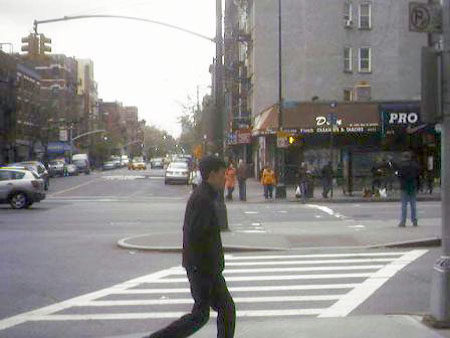
a phoetics: fragment 4
While I mark the beginning of my interest in spontaneous composition to my study of Caedmon's "sudden diction," its vein runs from the decision by St. Francis and Dante to write in the vernacular to Shakespeare's embrace of theater, Wordsworth's "real language of men in a state of vivid sensation," and William Carlos Williams' penchant for the "speech of Polish mothers." Near term, the context of "Street Mete" lays in Bertolt Brecht's War Primer of "photo-epigrams," Fluxus-happening poets (Cage, Acconci, and MacLow, among others), Mayer's "Memory" recordings and Antin's talk poems, among others. Harlem hovers over it all - its Renaissance taken up by the Beats. O'Hara's relates, too, in his advocacy of technology in "Personism": "It was founded by me after lunch with LeRoi Jones on August 27, 1959, a day in which I was in love with someone (not Roi, by the way, a blond). I went back to work and wrote a poem for this person. While I was writing it I was realizing that if I wanted to I could use the telephone instead of writing the poem, and so Personism was born... It puts the poem squarely between the poet and the person, Lucky Pierre style, and the poem is correspondingly gratified. The poem is at last between two persons instead of two pages. In all modesty, I confess that it may be the death of literature as we know it."
one: "I began working with voice recordings..."
two: "The week Robert Creeley died..."
three: "'Thing,' from the Anglo-Saxon..."
four: "While I mark the beginning of my interest..."
five: "After transcribing 'the wells at the mouth of itza...'"
six: "The distinction”and so mental distance..."
seven: "The PIE *wel- also means "to turn, roll...'"
eight: "Contrary to the fix in which Eliot lost and found..."
nine: "My relationship early on with ESB meta-intellect..."
ten: "It is absolutely important to remember..."